Large IT community at the conference iForum 2017 (Kiev)
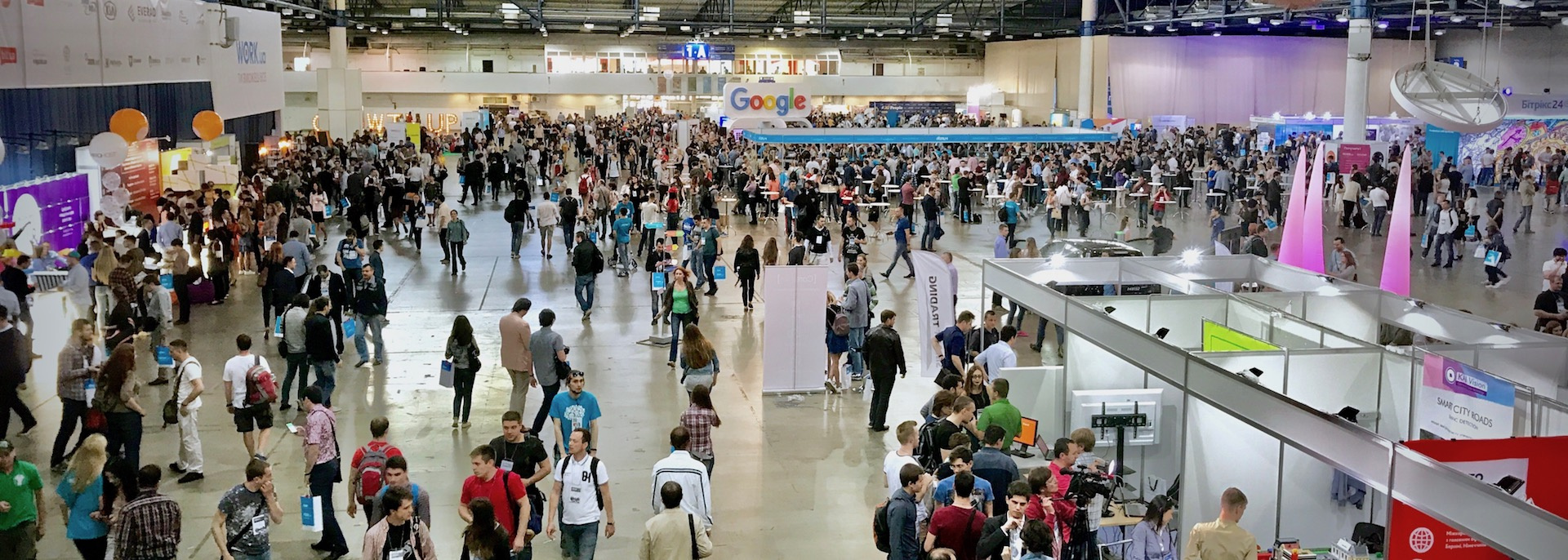
More than 7,000 visitors and 100 speakers, 5 streams, May 25, Kiev, IEC (where the Eurovision Song Contest 2017 was held). Let's compare with last year: 3500 visitors. What has changed? How did everything go? And for whom is this a community?
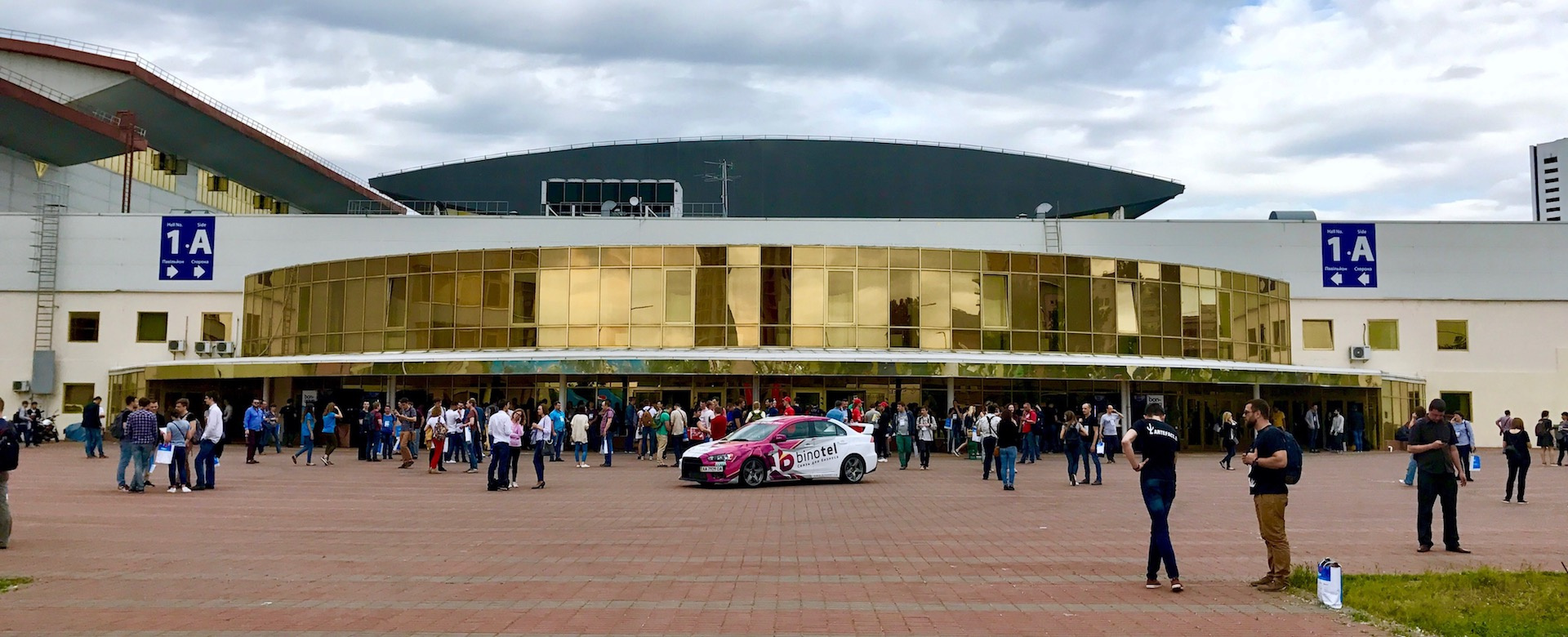
')
Compared to last year, the organization was very pleased. There was no queue in front of the entrance and the registration took one “peak” of the QR-code scanner on a pre-printed ticket. I liked that the organizers divided the registration and distribution of the schedule (for this there were separate info-stands), and to the right of the entrance there was a relaxed distribution of “waste paper” (a bag with handouts).
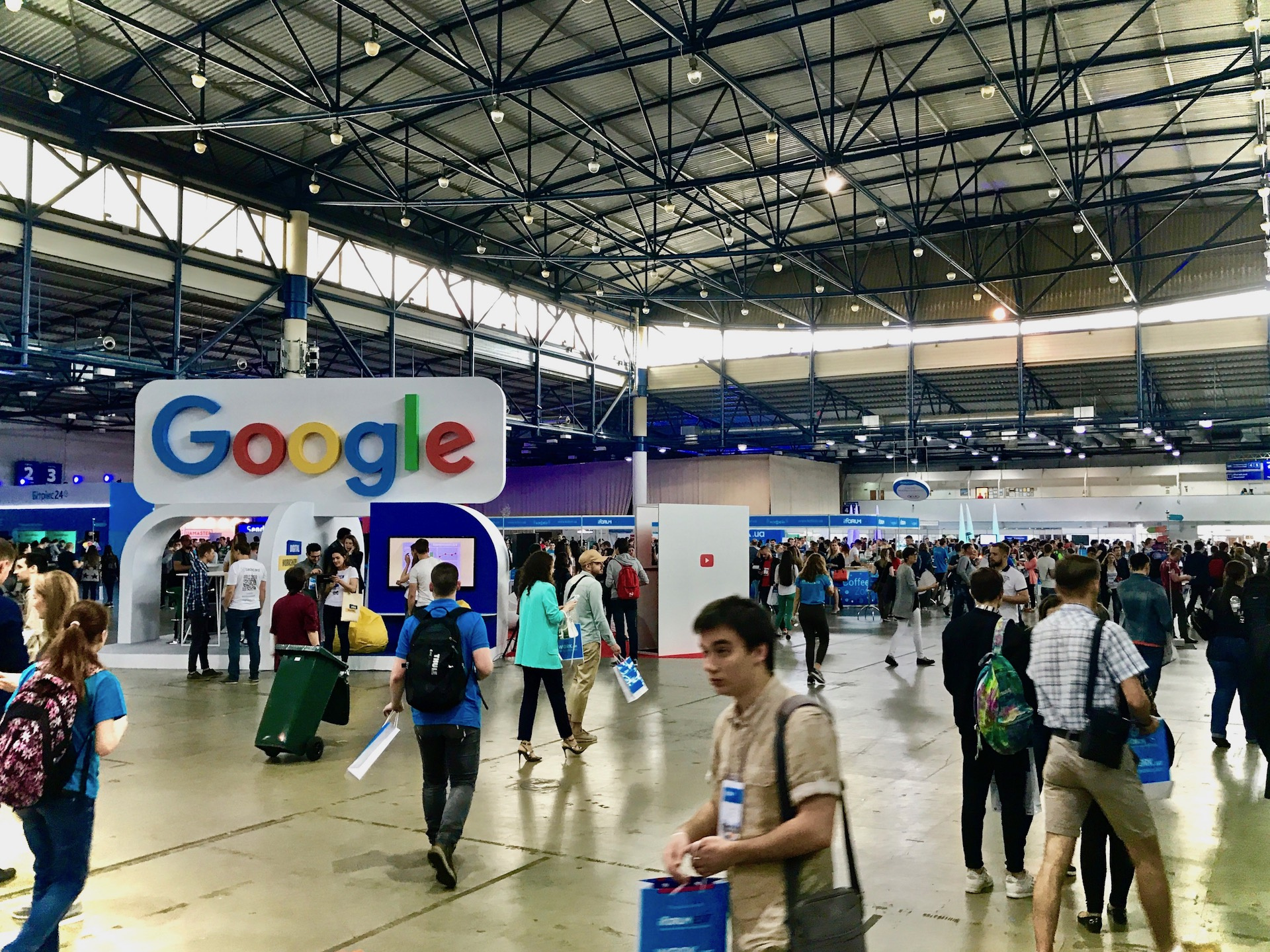
This year, another wing of the IEC was set aside for the event than last time, which gave a feeling of greater airspace. As they say, "lower and wider." Separately, I want to note that the exhibition stands were placed around the perimeter and in the center of the pavilion, which did not create a crush and facilitated their visit.
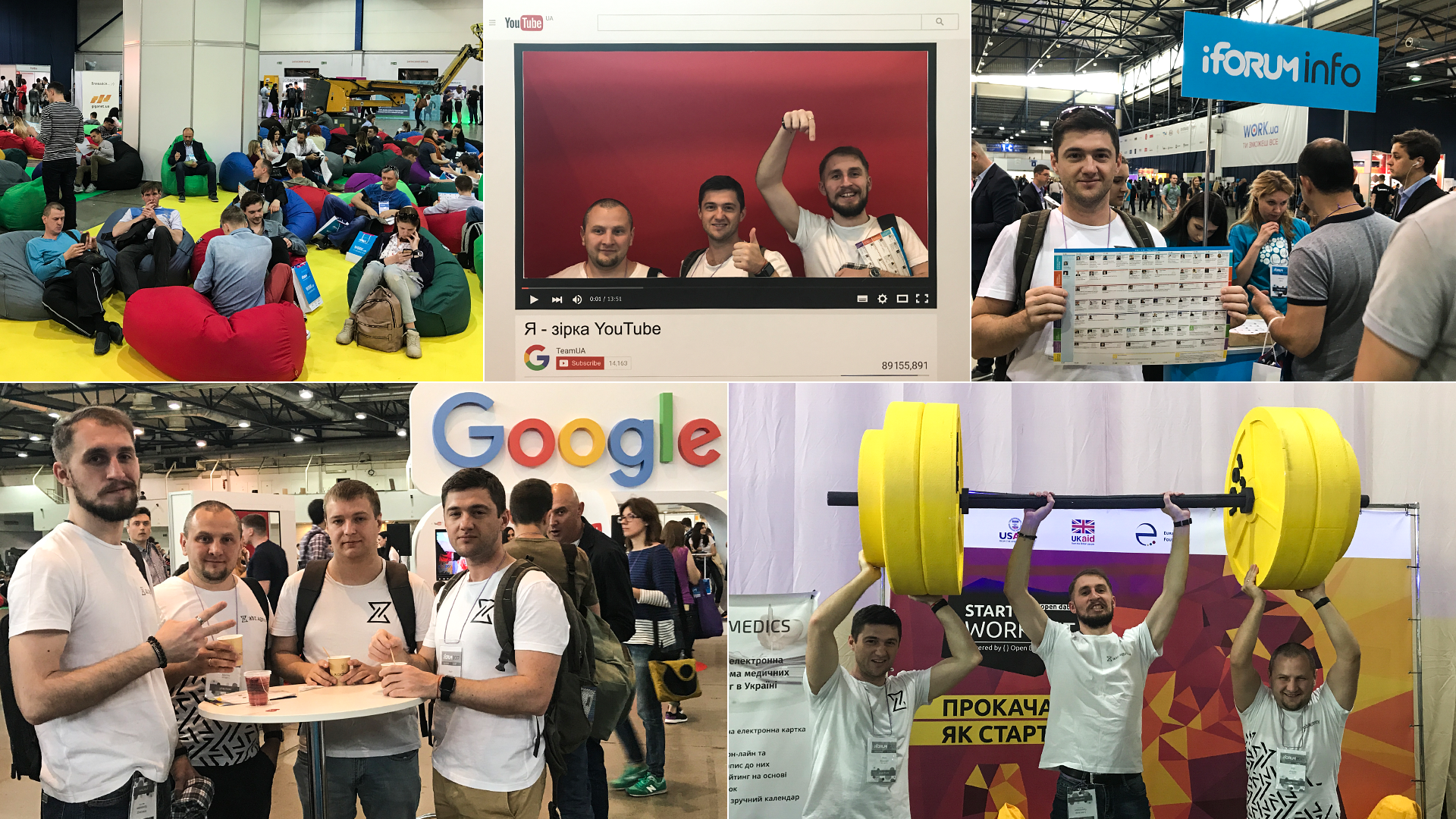
The central booth has occupied Google. Other large companies came up with different ways to get your contact. Leave a business card - get a souvenir. Scan the QR code, go through the registration and participate in the instant lottery game (got a candy, but a helicopter could :)). At the stand of Bitrix24, it was possible to take an electronic balloon and paint a picture on the screen, after that it was possible to get a T-shirt with this pattern. There were pavilions with photo zones, books, 3D printers, quadcopters, new electronic assistants and many other IT solutions.
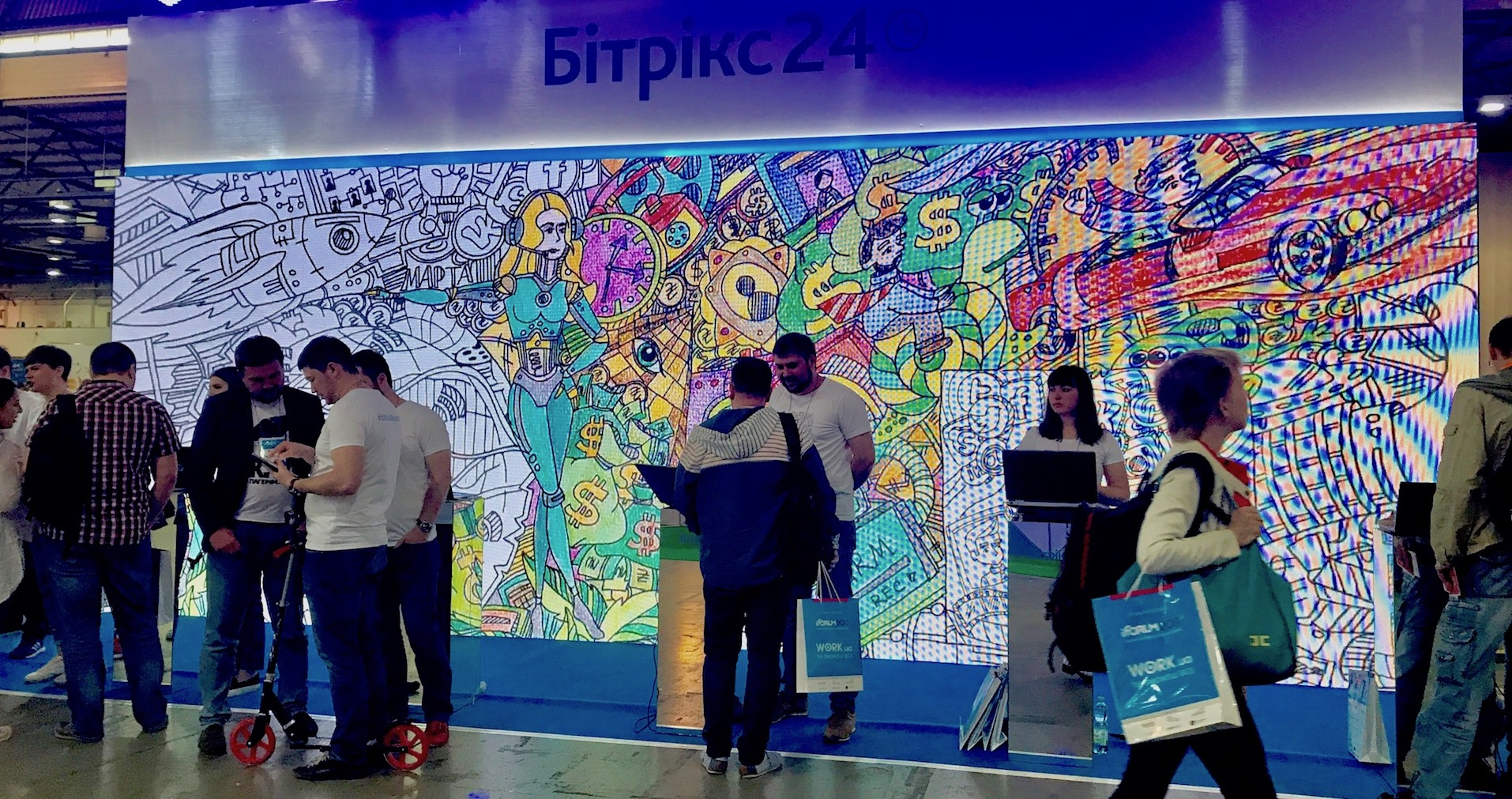
This conference is for ALL. Not only for IT people, startups, executives and developers. Here you will not be able to do networking, get a few people short, or find an investor (come and try, I’m not specifying). This is a place that breaks the working week and gives you one day in the world of IT technologies open to all. If you have a website, you can listen to speeches from google representatives and learn how to work with promotion correctly. If you have an IT company, you can listen to the experience of speakers who will also tell you something useful for you. If you are a developer, there is a separate stream for you with a discussion of new frameworks and what will replace them. This conference is open to anyone who is no stranger to the IT world.

Traditionally, Alexander Olshansky (organizer) opened the conference with an opening speech. Then the US Ambassador to Ukraine Marie Yovanovitch came on the scene and told us that we are all good guys and that we are a great outsource material. Everyone listened enthusiastically to her English.

Then there were the speeches of David Brown, which gathered probably the largest number of listeners. This guy can light. I listen to his speech is not the first time. With whatever topic he came on stage - the hall will applaud. No offense to other speakers, I understand that to go on stage and perform is work! But David goes on to talk about the theme “managing a creative company” and during his speech reveals the issues of hiring, sales, managing a company and staff, working on a product, etc. If you have the opportunity to listen to him, go and listen. Positive charge is provided to you.

Like last year, google prepared an interesting presentation with the important topic “Do you really need a mobile app?”. This concerns the issue of mobile sites. For all, it has long been no secret that google has already included the page loading speed in the ranking algorithm. And that those 1-3 seconds that a person expects to load your page decide whether you get a failure or a potential client. In the form of a solution, google suggests using Google AMP Cache.
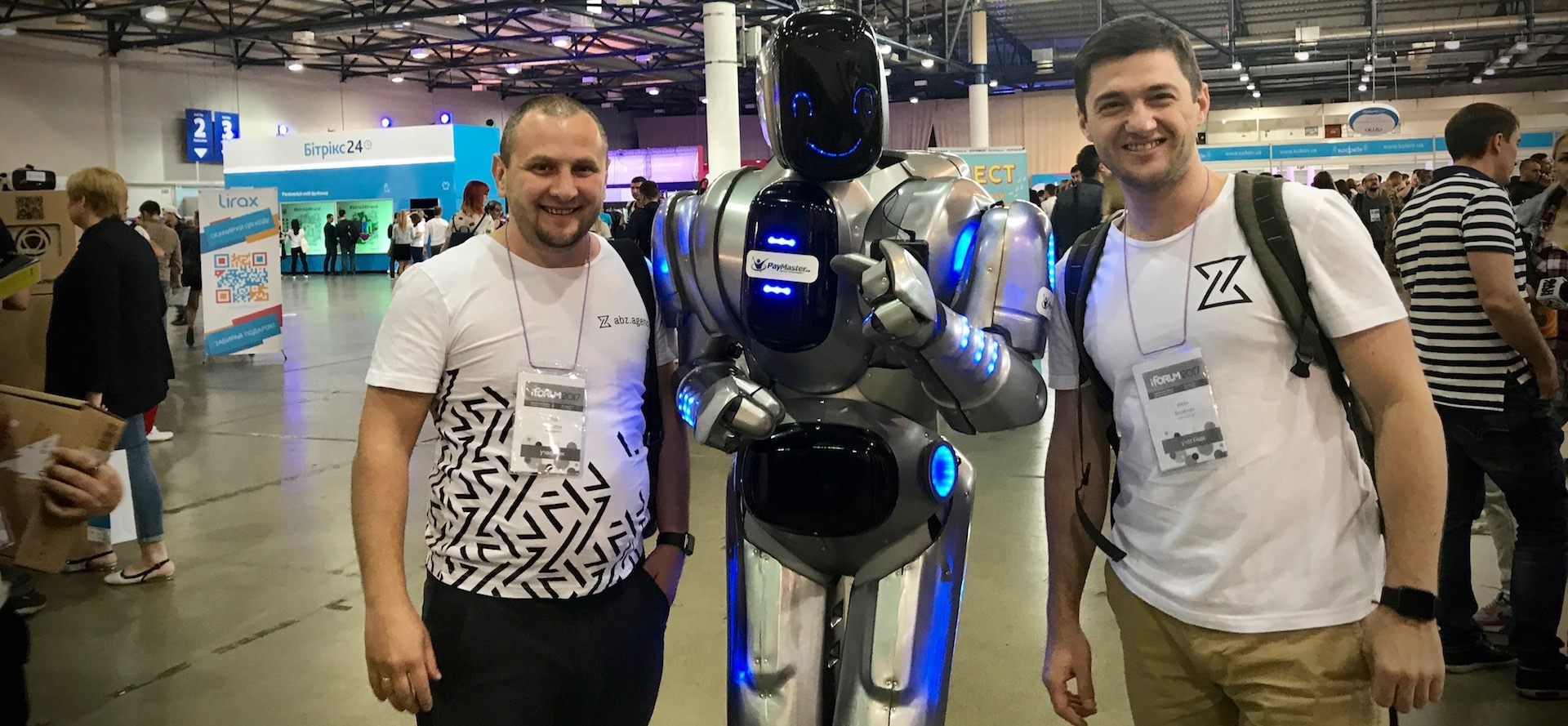
The second issue was the simplification of registration from the phone. According to Google, 97% of visitors stop on the order form. To solve this problem, they suggest using Google Smart Lock security simplified.

Then there were a lot of interesting speeches. It can be concluded that if last year Machine Learning was the main expression at the conference, then this year it was Castomer Success. And I would like to stay on the 2nd. David Brown’s second appearance with the theme “Castomer Success Team in a startup. Source of profit or cost? ”. And again, David raised all the issues of management and work with the client. He told about the strategy for building a successful startup and how to continue to work with a product or service company. He did not just reveal the concept of Castomer Success, but gave quite a few vital recommendations on how to work with clients, both new and existing.
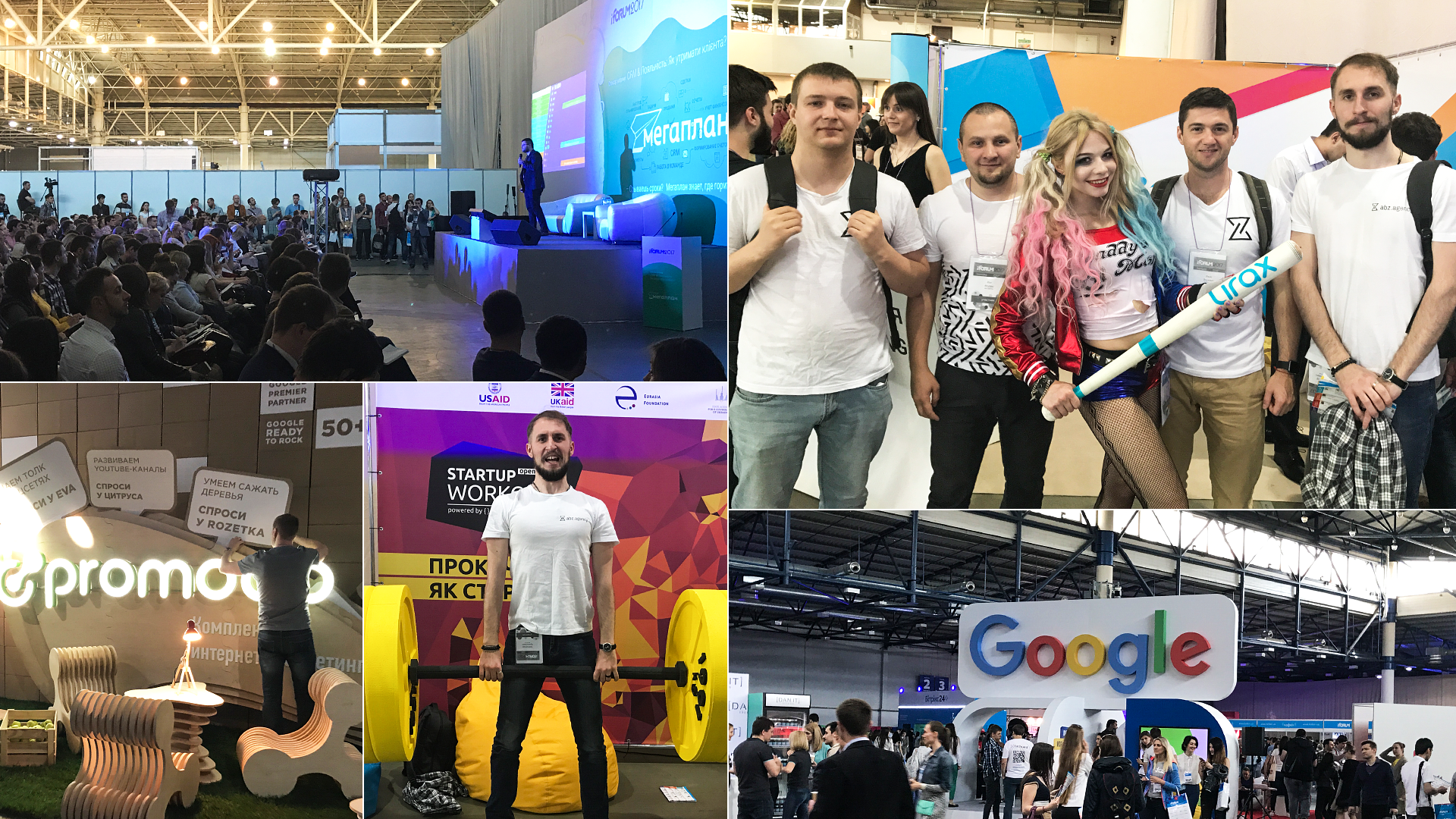
In short, the essence of David’s two speeches (for me) was that we needed to work with a client. We need to study not our Success, but Success of the client. Does he work with our product, does he use it and does he use it correctly. Perhaps, if the majority of our users use our product, not as we imagined, then we should think about how to change our perception of the product, and not try to retrain everyone. We need to talk to customers and understand what they really need. ... I think that iForum will post a video with the speeches of the speakers and you will have the opportunity to listen to yourself.

Many speakers talked about how to build their startup or grocery company, told them to change and give recommendations. And here is the last speech before closing, Artem Yaremchuk spoke on the topic “B2B sales in the USA. How to build a “scalable model”. If you believe everything he said, then he not only confirmed all the above at the conference on this issue, but also created a company according to these rules. And for 4 years I achieved stability and success.

Artem told how they started, what they had at the beginning of each year and what were their development plans. I recommend to find a video with his performance and listen to yourself. In short, I will try to convey the basic idea. When we think about a startup (our company has invested two of its own startups and I know what I'm talking about), then you think: I have an idea, I have money - we need a product. Our product is a secret and we will not tell anyone about it until we “roll out” the final version for sale. Toward the end, you already have an almost finished product and we have managed to make both products in time. Even found an investor. And then attention! You roll your product onto the market ... and that’s it. Then nothing happens. We don’t have orders, you don’t have 100 sales a day. You do not have 10,000 visitors, and the traffic that does not give the expected conversion.
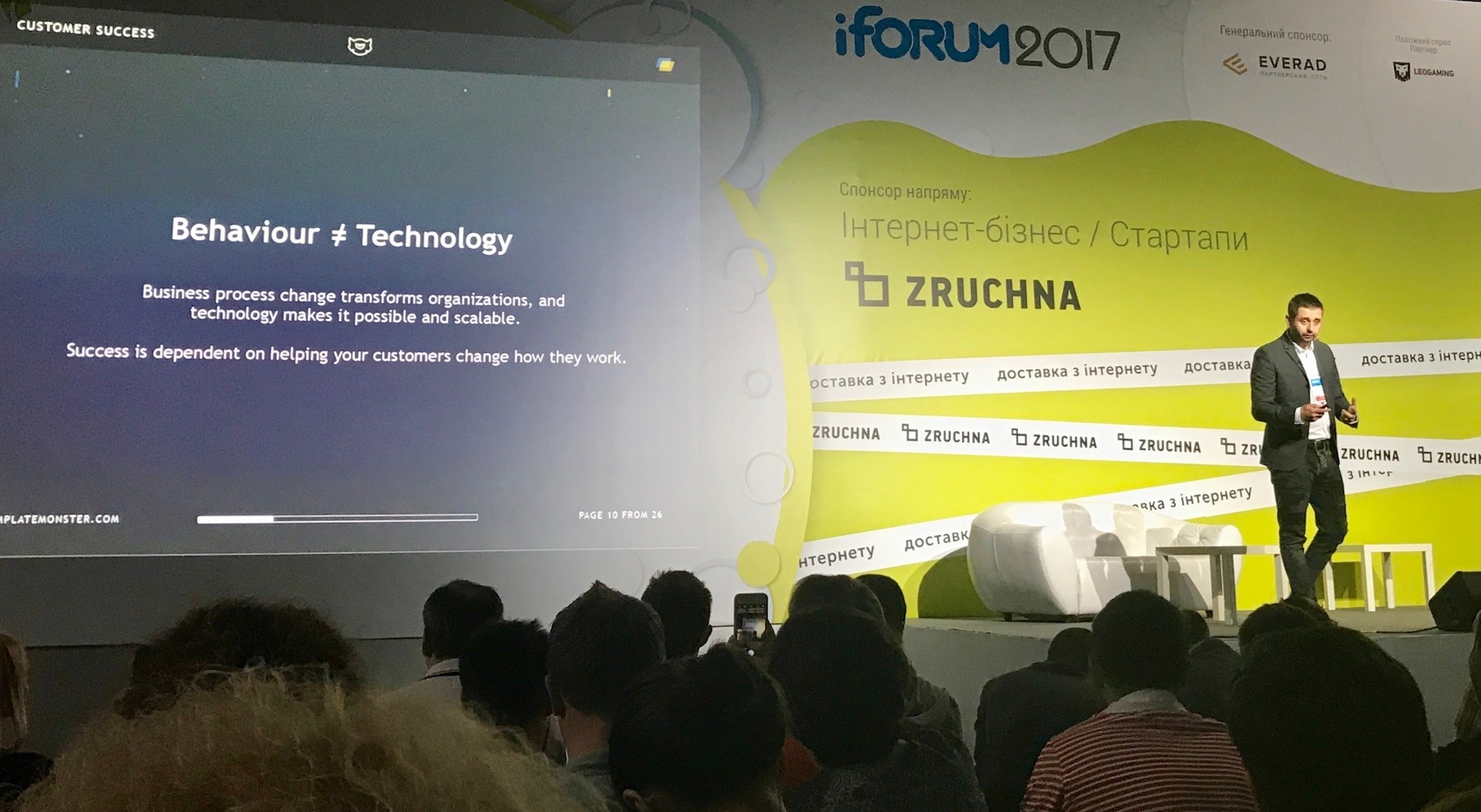
How right? Start with an idea and start selling it. You need to start with marketing and sales. You need a market, you need an investor and you want to buy your product. And only then or in parallel you can develop your product. And know (especially beginner start-ups and investors) there is no end to the development process. Especially the fact that only 30% of your features will eventually be popular. And then when you already have a product, an investor and you clearly know how to sell it, you immediately need to think about how to support customers, how to keep existing ones. And many more other questions.

I will say from myself, summing up. A start-up, grocery IT company or outsourcing IT service provider is not Google with a table tennis table, a balcony with weed, and a forever happy team. Dear customers, partners, employees and investors - an IT company - must be profitable! And it is better to compare any profitable IT company with production, with a pipeline and any other profitable organization. With ordinary offices, workdays, tires, deadlines, etc. An IT company is a pipeline - you need raw materials, you need to maintain line speed, and you need a good sales. Everything else is secondary.
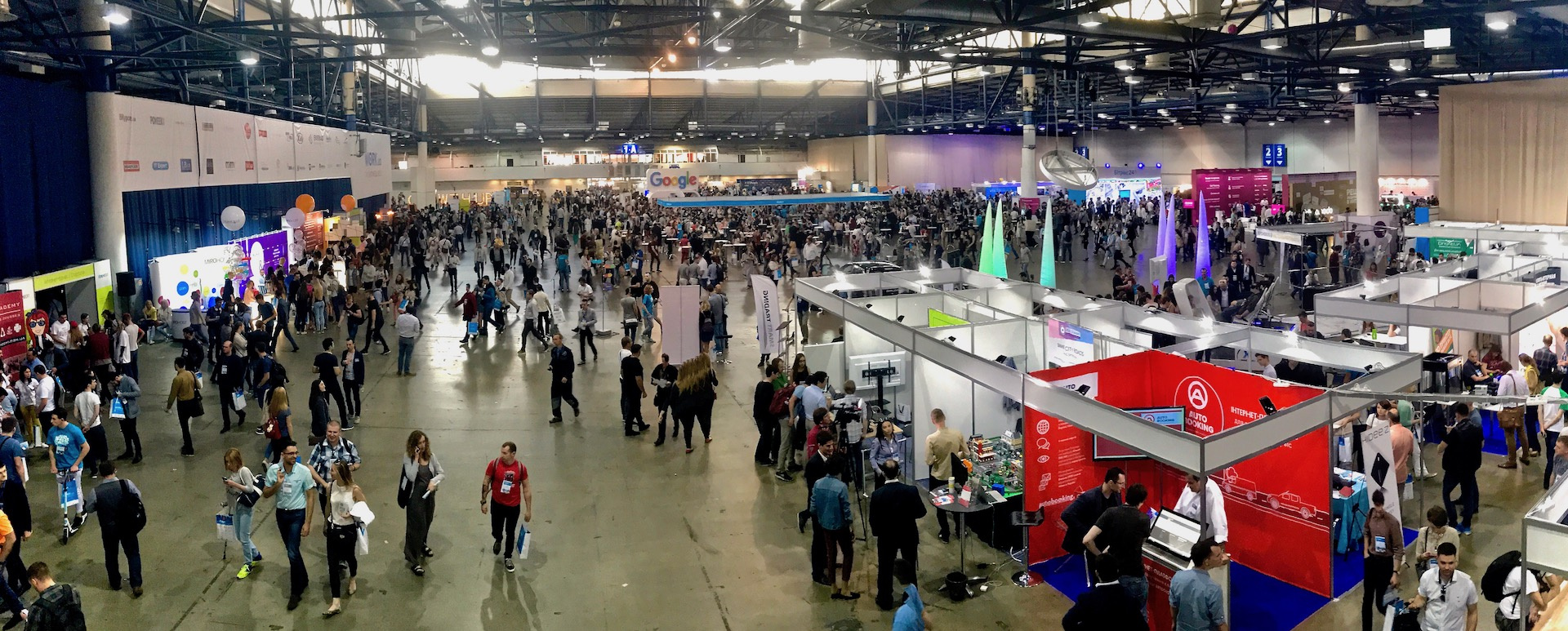
Thanks again to the organizers of iForum, which turns our workdays into a small holiday of the IT community.
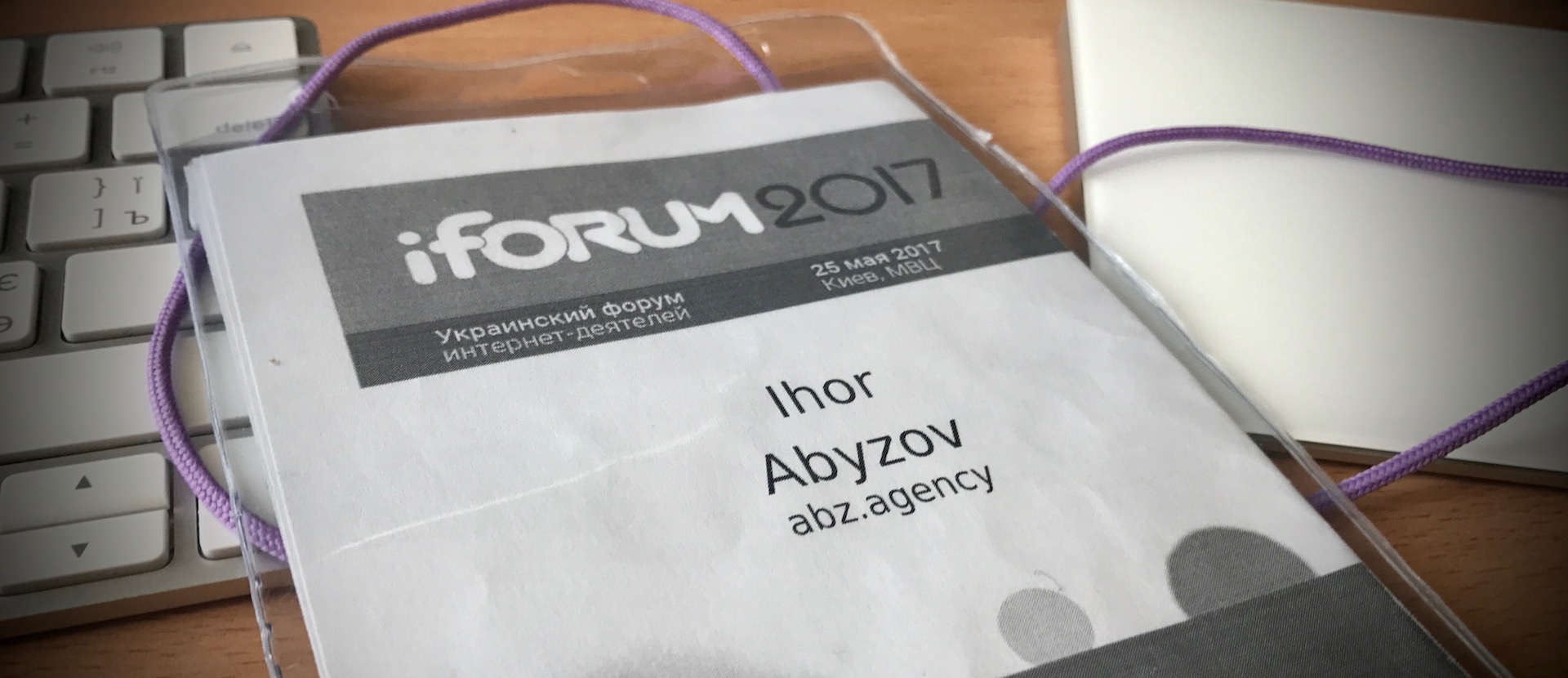
Source: https://habr.com/ru/post/329700/
All Articles